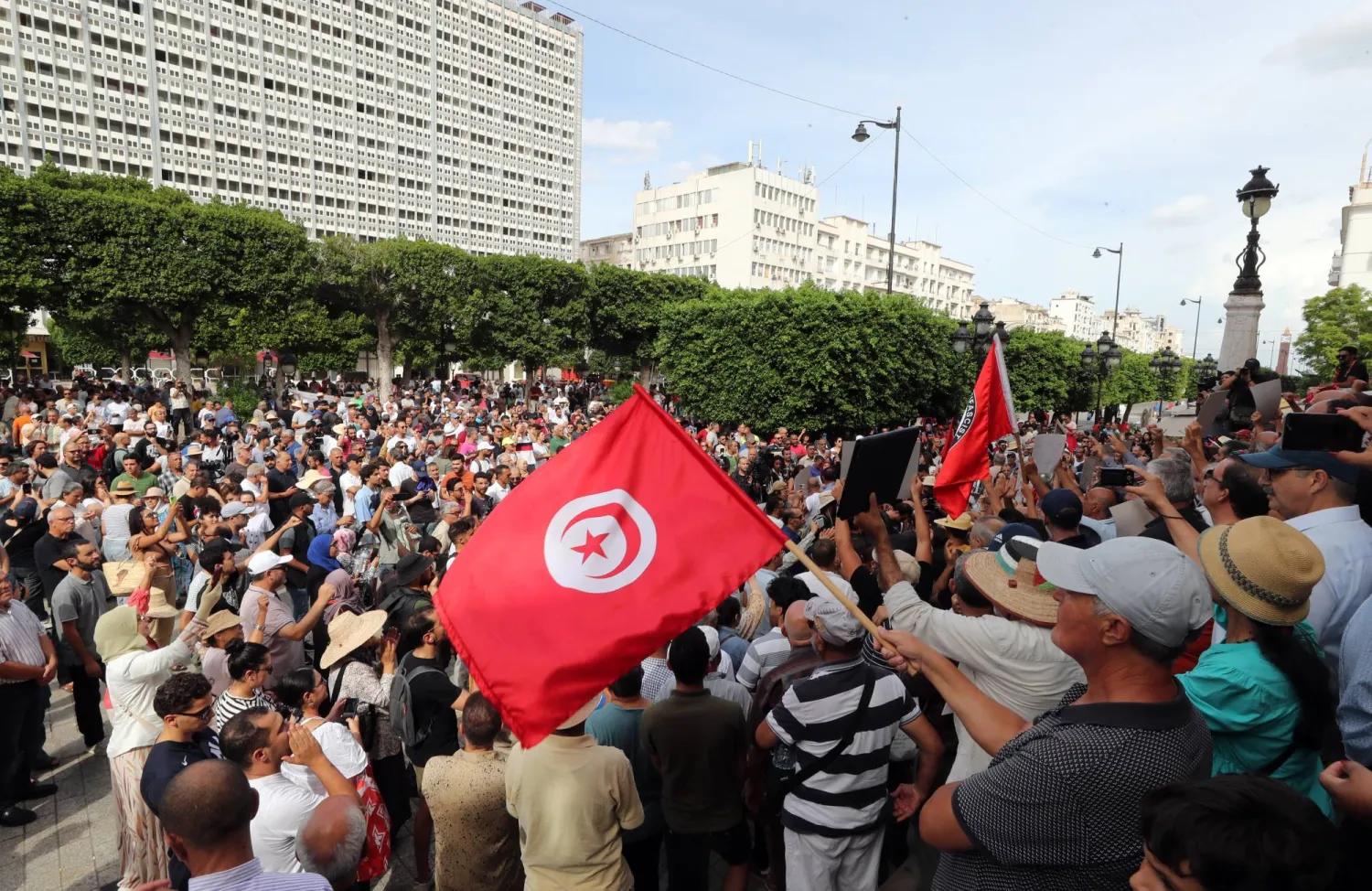Hundreds of Tunisians protested on Sunday against President Kais Saied, accusing him of stifling political competition two weeks before a presidential election.
Amid a heavy police presence, protesters for a second week marched along Tunis' main avenue, a focal point of 2011 "Arab Spring" revolution, chanting slogans including "The people want the fall of the regime" and "Out with dictator Saied.”
The protest came after lawmakers proposed a bill to strip the administrative court of its authority to adjudicate electoral disputes, a move that the opposition says would discredit the Oct. 6 election, and pave the way for Saied to secure a second term.
"Saied's steps show that he is no longer popular and he fears losing the election", Nabil Hajji, the leader of the opposition Attayar party, told Reuters.
"Tunisians now have only one choice, which is the streets to defend our democracy," he said.
Political tensions in the country have risen since an electoral commission named by Saied disqualified three prominent presidential candidates, Mondher Znaidi, Abdellatif Mekki and Imed Daimi.
The commission defied the administrative court, the highest judicial body in election-related disputes, and allowed only two candidates to run against Saied.
One of them, Ayachi Zammel, is in jail after being sentenced on Wednesday to 20 months in prison for falsifying signatures on election paperwork in what he calls a politically motivated case.
Critics say Saied is using the electoral commission and judiciary to secure victory by stifling competition and intimidating candidates. The president denies the accusations, saying he is fighting traitors, mercenaries and the corrupt.
Tunisians Resume Protests Against President Ahead of Election

People take part in a protest against Tunisia's President Kais Saied in Tunis, Tunisia, 22 September 2024. EPA/MOHAMED MESSARA

Tunisians Resume Protests Against President Ahead of Election

People take part in a protest against Tunisia's President Kais Saied in Tunis, Tunisia, 22 September 2024. EPA/MOHAMED MESSARA
لم تشترك بعد
انشئ حساباً خاصاً بك لتحصل على أخبار مخصصة لك ولتتمتع بخاصية حفظ المقالات وتتلقى نشراتنا البريدية المتنوعة







